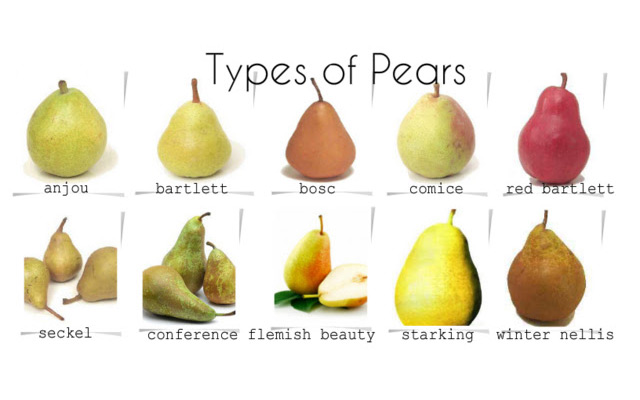Pears (also known as nashpati) are a delightfully juicy and elusively flavored sweet fruit, which is one of the most common fruits found with fruit vendors near you. But did you know that some of the vital nutrients found in pears may play preventive roles in heart problems, cancer and other diseases? Pears provide a variety of the essential nutrients necessary to lead a healthy lifestyle.
Health Benefits of Pears for Natural Healing
The skin of pears contains valuable phytonutrients, which reduces the risk of certain types of cancer and heart disease.
Pears are an excellent source of fiber, providing about 24% of your daily needs. Fiber is an important preventive agent against many chronic diseases, and it plays a beneficial role in glucose metabolism and diabetes management.
Pears are sodium-free, cholesterol-free, fat-free, and contain 190mg of potassium, all important players in cardiovascular disease prevention, according to the American Heart Association.
Pears are a good source of vitamin C, an important antioxidant necessary for bone and tissue health and prevention of cardiovascular disease and various cancers.
Pears are also a natural source of other antioxidants, which, according to the American Dietetic Association, are important in the prevention of cardiovascular disease, cancer and diabetes, may improve immune function, and lower risk for infection.
Pears, are a fat-free, nutrient-dense food that can help fill you up and keep you satisfied. According to the 2005 Dietary Guidelines for Americans, these benefits may aid in weight loss and weight management.
Pears have large amounts of natural fructose and glucose, making them a quick source of healthy energy. Pears also contain levulose. Non-insulin dependant diabetics can also enjoy pears to satisfy their “sweet tooth”.
There is nothing more refreshing than a deliciously juicy pear. In India pears are grown in Himachal Pradesh at the foothills of the himalayas. Outside of India pears are famously grown in Oregon and Washington where the right mix of volcanic soil, clean mountain water and warm spring and summer days, with cool nights, combine to produce some of the world’s finest pears. Among the 8 major varieties of pears, Green Anjou, the green/yellow-green, bell shaped pear is the most preferred all around the world.
Pears are one of the world’s oldest cultivated and beloved fruits. In 5,000 B.C., Feng Li, a Chinese diplomat, abandoned his responsibilities when he became consumed by grafting peaches, almonds, persimmons, pears and apples as a commercial venture. In The Odyssey, the Greek poet laureate Homer lauds pears as a “gift of the gods.” Pomona, goddess of fruit, was a cherished member of the Roman Pantheon and Roman farmers documented extensive pear growing and grafting techniques. Thanks to their versatility and long storage life, pears were a valuable and much-desired commodity among the trading routes of the ancient world.
Pear fruit helps keep our body moisturized. They are good for energy and balancing of hormones in the body. Pears also help in uplifting our emotions. Pear is light, sweet, gives virility and balances all the three excessive humors of the body, i.e. kapha, pitta and vata. Eating sweet pears is also beneficial for weakness of lungs and helps invigorate the brain. Pears help quench thirst, and are also diuretic. In traditional chinese medicine, pears are used when excess heat dries up the fluids in the lungs.
Pears Help with Constipation
The pectin in pears is diuretic and has a mild laxative effect. Drinking pear juice helps regulate bowel movements.
Pears Help Lower Blood Pressure
Pears have anti-oxidant and anti-carcinogen glutathione which help prevent high blood pressure and stroke.
Pears Help Reduce Fever
The cooling effect in pear fruit is excellent in relieving fever. The best way to bring a fever down quickly is by drinking a big glass of pear juice.
Pears Help Boost the Immune System
Anti-oxidant nutrients, which are highly present in pears, are critical in building up your immune system.
These juicy fruits are a good source of hydroxycinnamic acid, a compound known for preventing stomach cancer. A single serving of pears daily has been associated with reducing the risk of lung cancer and postmenopausal breast cancer in women.
Quercetin, an antioxidant present in the skin of pears, helps in reducing the risk of cancer and artery damage. Recent studies state that this antioxidant also provides protection against Alzheimer’s disease.
Similar to other fruits, pears help in stimulating healthy cholesterol levels due to the presence of pectin in high amounts. Studies reveal that pears contain more of this ingredient than apples.
If the pulp of pear fruit is baked in fire, and then made into small balls while mixing powdered cumin seeds, powdered black pepper and salt, it can cures lack of appetite.
Pears can be eaten raw, stewed, baked, or sliced and sautéed in ghee and sweet spices.
Recipe for Stewed Apples and Pears
1 organic apple
1 organic pear
1 Tbsp. organic raisins
1 clove
1/4 cup water
Chop fruit into small pieces. Place fruit in a small pot and add about 1/4 cup water. Add raisins and clove. Bring to boil and then back to low heat. Cook for about 20 minutes or until the fruit is of a tender consistency. Eat warm.










